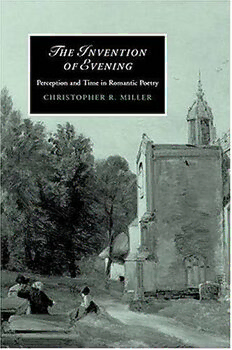
The Invention of Evening: Perception and Time in Romantic Poetry PDF
278 Pages·2009·1.607 MB·English
Most books are stored in the elastic cloud where traffic is expensive. For this reason, we have a limit on daily download.
Preview The Invention of Evening: Perception and Time in Romantic Poetry
Description:
Lyric poetry has long been considered an art form of timelessness, but Romantic poets became fascinated by one time above all others: evening, the threshold between day and night. Christopher R. Miller investigates the cultural background of this development. The tradition of evening poetry runs from the idyllic settings of Virgil to the urban twilights of T. S. Eliot, and flourished in the works of Coleridge, Wordsworth, Shelley and Keats. In fresh readings of familiar Romantic poems, Miller shows how evening settings enabled poets to represent the passage of time and to associate it with subtle movements of thought and perception. This leads to new ways of reading canonical works, and of thinking about the kinds of themes the lyric can express.
See more
The list of books you might like
Most books are stored in the elastic cloud where traffic is expensive. For this reason, we have a limit on daily download.
